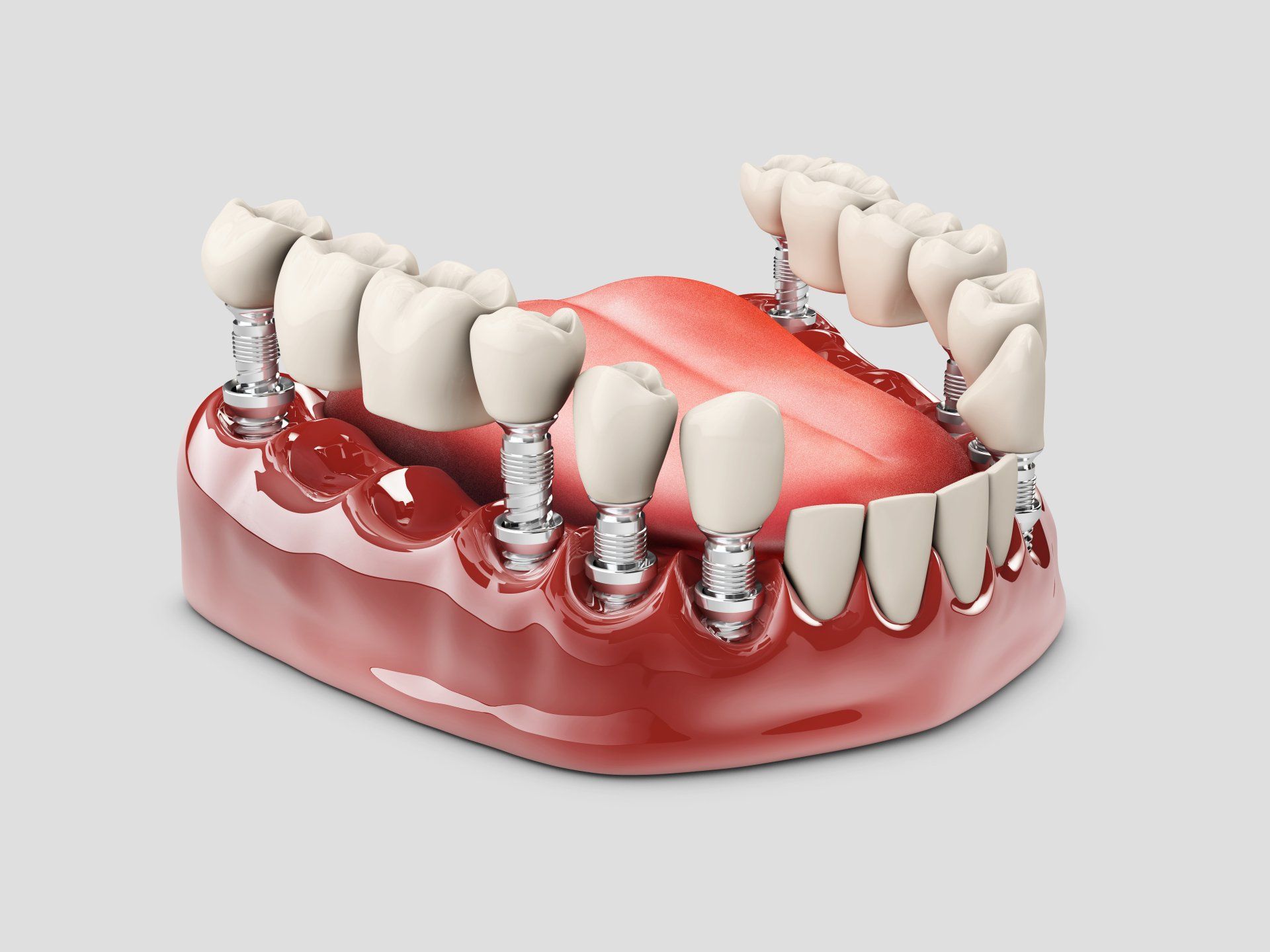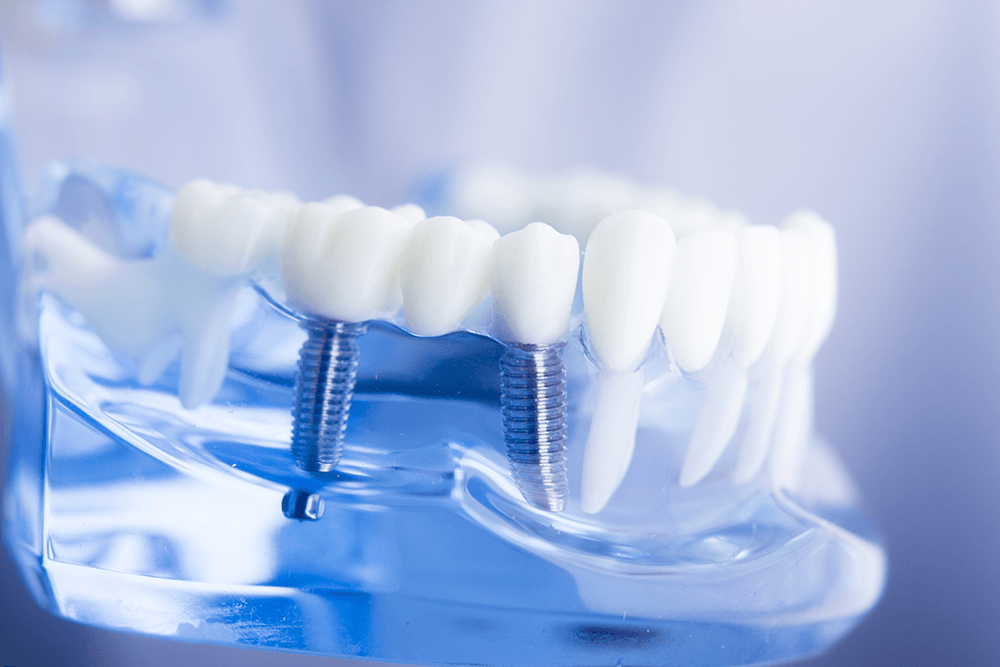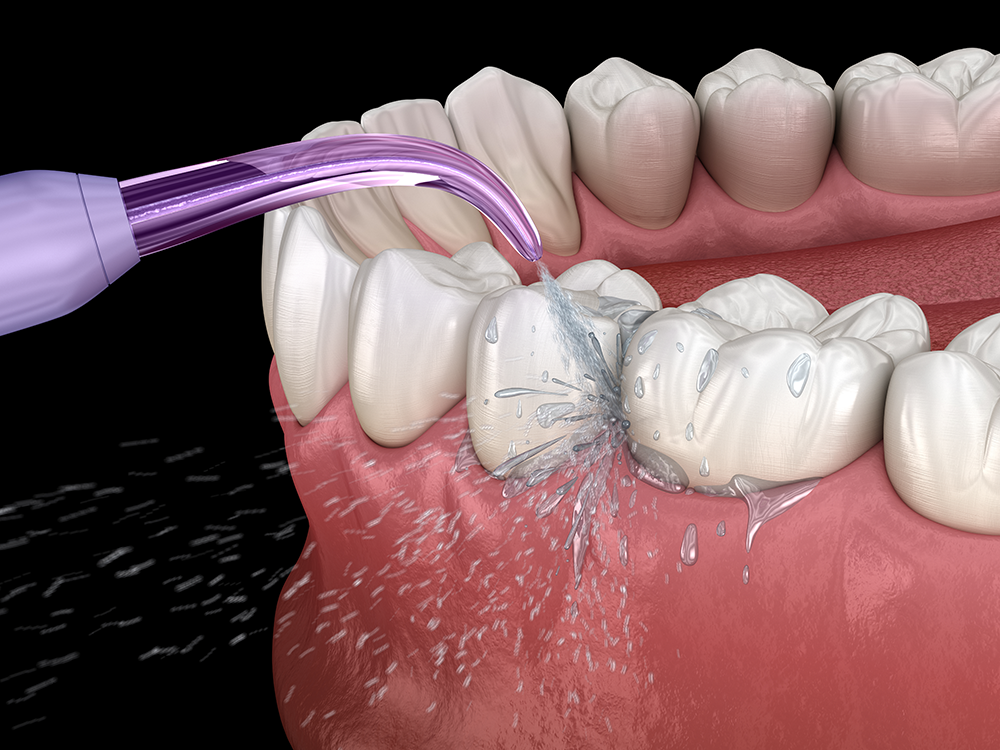
What is an Implant Bridge?
Implant bridges replace three to four teeth or more without the need to wear a removable partial denture. These dental bridges are made of porcelain or zirconia and look like traditional dental bridges. However, they are supported by a pair of dental implants, allowing the bridge to replace additional teeth.
Implant bridges are a great alternative to partial dentures. Additionally, the implants help add bone volume to the area, which helps prevent premature aging in your face.
How Many Implants are Needed?
Implants are not always placed one to one for every tooth that is missing. Instead, they can be paired together in a larger space to anchor multi-tooth restorations such as bridges (or in the case of complete tooth loss, a permanent denture.) For 3-4 missing teeth, two implants are usually all that’s necessary.
Additional implants can be added when more than four missing teeth are involved. However, the planning process depends on many factors. In instances where all of the teeth are missing, full-arch rehabilitation can be achieved using alternative therapies such as All-on-4 or All-on-6 types of permanent dentures, rather than multiple dental bridges.


How to Choose the Best Implant Treatment
Implants are one of the best ways to restore your smile, but not all types of implants are right for everyone. If you’re missing teeth, it's best to consult with implant specialists in Riverview to discuss your situation. They can help you understand the pros and cons of each option as it relates to your specific oral health needs.
If you still have several healthy teeth, a fixed implant bridge can fill in open spaces without altering the health of the teeth you’re preserving. Your implant bridge is matched to your surrounding teeth, allowing you to smile confidently throughout the day. It will be just as strong and functional as anatomical teeth.
Advantages of Implant Bridges
Fixed implant bridges are great alternatives to removable tooth replacements. Here are some of the reasons why:
- There are no removable prosthetics
- There is no need to alter your healthy neighboring teeth
- Implants perform like natural teeth
- Anti-aging properties in your bone and face
- Implants can last a lifetime
- Simple daily maintenance
After your restoration process is complete, you will be able to smile, eat, and laugh again like you did before your teeth went missing.


How to Care For an Implant Bridge
An implant-supported dental bridge can be cared for at home in the same way as a traditional bridge. You should clean the area between the implant-supported bridge and your gum tissue every day, particularly around the base of each implant.
We also recommend flossing around implants at least twice daily. Water flossers can also be helpful if a floss threader with conventional floss is more challenging to use. Also, plan to have your restoration professionally evaluated and cleaned by scheduling six-monthly checkups.
By keeping these areas clean, you can prevent food accumulation, bad breath, and infection around your new dental implants.
A Cost-Effective Smile Investment
An implant bridge can provide a lifetime of benefits. Implants last for decades, if not a lifetime, so you can permanently replace missing teeth without worrying about updates or replacements in the years ahead.
Dental implant treatments offer the highest return on investment, even compared to traditional dentures and partials. Best of all, you can save by placing fewer implants than the total number of teeth that are missing.


Getting an Implant Bridge:
What to Expect
The first step to getting any type of dental implants is determining whether you are a good candidate for implant therapy. During your consultation, we will assess your overall health, as well as the condition of your gums, bone and neighboring teeth. We’ll also take digital x-rays, photos, and impressions to help with the treatment planning process. If you fit the criteria for a dental implant bridge, we’ll schedule you for an installation phase and second visit where the bridge is installed. Other appropriate treatments will be reviewed, if needed.
Most people will wear some type of temporary prosthesis while their implants integrate. It usually takes around three months for implants to fuse with the bone. Once they are fully integrated, we can install your permanent bridge.
Call Our Riverview Dental Office Today
Dental implant therapy requires visiting an experienced dentist with the right training and experience. At Best Value Dentures and Implants, implants are our specialty. We would love to have your smile as our next success story. Call our implant dentist in Riverview today to find out if you are a candidate for this life-changing treatment.
